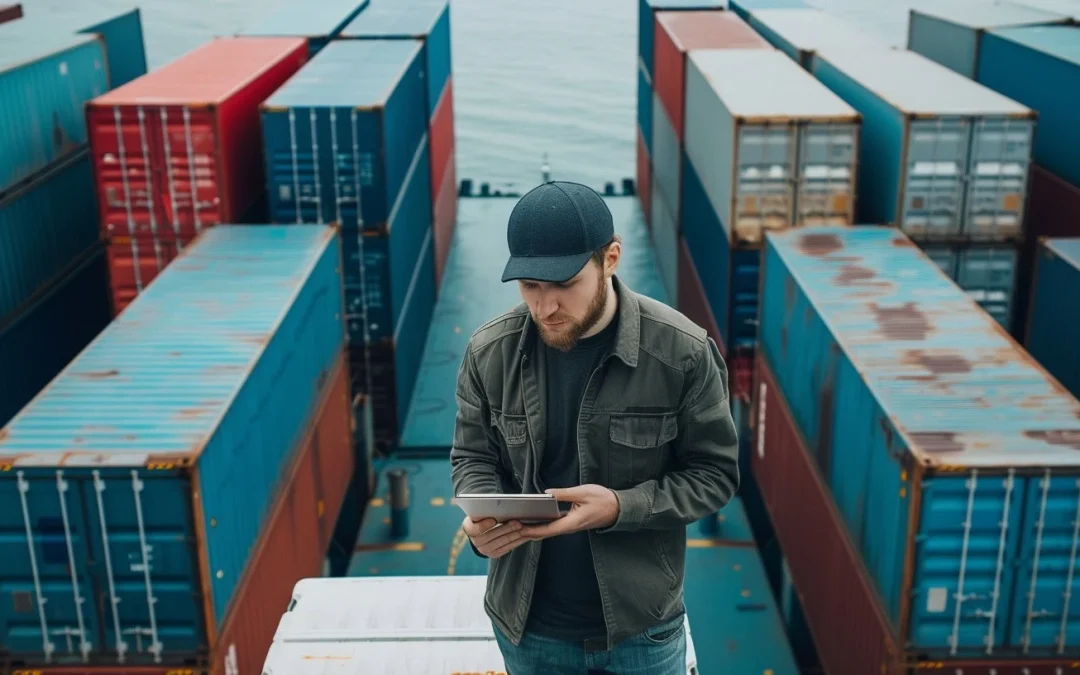When importing goods, choosing who can act as Importer of Record is a critical decision that can significantly impact the smoothness and compliance of your operations. The role of an importer of record involves key responsibilities, such as managing customs documentation, ensuring regulatory compliance, and handling import duties. Whether you decide to manage this process in-house, partner with a customs broker, or engage a specialized IOR service provider, each option presents unique advantages tailored to your business’s specific needs.
In this article, we’ll guide you through the process of selecting the ideal IOR solution, providing clarity on who can be your IOR and helping you streamline your import compliance efficiently. Let’s evaluate how to make the best choice for your business.
Who Can Act as Importer of Record?
Acting as an Importer of Record involves ensuring compliance, managing customs documentation, and paying duties for imported goods. Depending on your business’s resources and needs, you can take on this role yourself or outsource it to experts. Here’s an overview of who can be an IOR and when each option is best suited for your business:
In-House IOR (Importing Yourself)
Managing IOR responsibilities in-house means your business takes full control of the entire import process. This involves handling customs documentation, compliance, and paying duties on imported goods. This option is best suited for companies that have a skilled compliance team and sufficient resources to manage the complexities of international trade.
The main advantage of in-house IOR is that your business maintains complete control and deeply understands the products being imported, which can result in potential cost savings if the team is already experienced. However, it comes with challenges, such as requiring specialized knowledge of customs regulations, significant time investment, and the risk of being overwhelmed without proper resources.
Customs Brokers
Customs brokers are experts in managing complex customs regulations and can act as the Importer of Record on your behalf. They manage the compliance, documentation, and customs clearance for your imports. The primary benefit of using a customs broker is their expertise, which allows for quick and efficient handling of complex imports. However, this service comes at an additional cost, and by outsourcing these responsibilities, your business may lose some control over the import process.
3PLs
Third-party logistics providers (3PLs) deliver a comprehensive suite of services—including transportation, warehousing, and distribution—that often integrate IOR functions into one streamlined package. For businesses aiming to simplify their supply chain management, outsourcing logistics to experts via a 3PL can be an attractive option. This approach not only offers the convenience of bundled services—with benefits like cost savings and simplified coordination—but also consolidates your logistics operations under a single provider. However, it’s important to note that 3PLs may not always have the same depth of expertise in customs compliance as dedicated IOR specialists, making them less ideal for handling highly regulated or complex import scenarios.
Freight Forwarders
Freight forwarders focus on managing the shipping process and may offer IOR services as part of their logistics offerings. They handle transportation, assist with customs documentation, and ensure compliance with import regulations.
The benefit of using a freight forwarder is the integrated nature of shipping and import services, as well as their expertise in global shipping routes. However, freight forwarders tend to focus less on customs compliance than specialized IOR providers, which may require additional support for more complex regulatory requirements.
IOR Providers
Specialized IOR providers focus exclusively on managing the responsibilities of the importer of record. They handle all aspects of IOR, including ensuring compliance with regulations, managing paperwork, and clearing goods through customs.
The key advantage of using a specialized IOR provider is their unmatched expertise, making them reliable and efficient for even complex or high-value imports. These providers often include additional support, such as regulatory guidance, to help ensure that your shipments meet all necessary compliance requirements. However, the specialized expertise comes at a higher cost compared to general service providers. Explore the key tasks for IOR success
How to Choose the Right Importer of Record Option for Your Business?
Selecting the appropriate IOR solution depends on your company’s specific needs, resources, and the complexity of your imports. To help you decide who should be the Importer of Record for your business here’s a comparison of various IOR solutions:
| Option | When to Choose | Key Benefits | Challenges |
| In-House IOR |
|
|
|
| Customs Brokers |
|
|
|
| Third-Party Logistics (3PLs) |
|
|
|
| Freight Forwarders |
|
|
|
| Specialized IOR Providers |
|
|
|
Choosing the Perfect IOR for Your Needs
Selecting the right IOR solution is essential for ensuring smooth, compliant, and cost-effective international trade. To make the best decision for your business, consider the following key factors when determining who can act as the Importer of Record for your shipments:
Company Size and Resources
Assess whether your company has the internal expertise, compliance team, and resources to manage customs compliance efficiently. Larger companies with a dedicated team may be more suited for handling IOR in-house, while smaller companies may benefit from outsourcing to specialists.
Import Volume
Consider how frequently your company imports goods and whether your team can handle the volume. High-volume importers might benefit from in-house management or specialized IOR providers, while businesses with lower import frequency may find it more cost-effective to work with third-party providers or freight forwarders.
Product Complexity
Consider the complexity of the products you are importing. Do your products require special permits, classifications, or adherence to strict regulations? If the products are regulated, high-value, or complex, who can act as importer of record may be best answered by a specialized IOR provider or a customs broker. Simpler products might offer more flexibility in selecting a suitable IOR solution, with less need for specialized expertise.
Budget
Determine how much your company is willing to invest in import services. Some IOR options, like specialized providers, may come with higher costs but offer greater expertise and reliability, especially for complex imports. If budget constraints are a concern, 3PLs or freight forwarders may provide a more affordable solution, especially for straightforward imports.
Control
Consider whether your business prefers to retain full control over the import process or if you would prefer to outsource for convenience and efficiency. In-house IOR gives you control over every step while outsourcing to providers like customs brokers, 3PLs, or freight forwarders offers the advantage of expertise and reduced internal workload.
Why Choose IOR Africa?
For guaranteed importation, IOR Africa offers a trusted Importer of Record service backed by a skilled team of experts in the logistics industry, with a particular focus on IT and tech commodities. Our team ensures a seamless, hassle-free, cost-effective IOR experience across over 60 countries. Partner with us to navigate the complexities of international trade with confidence and efficiency. Fill out the form now.

